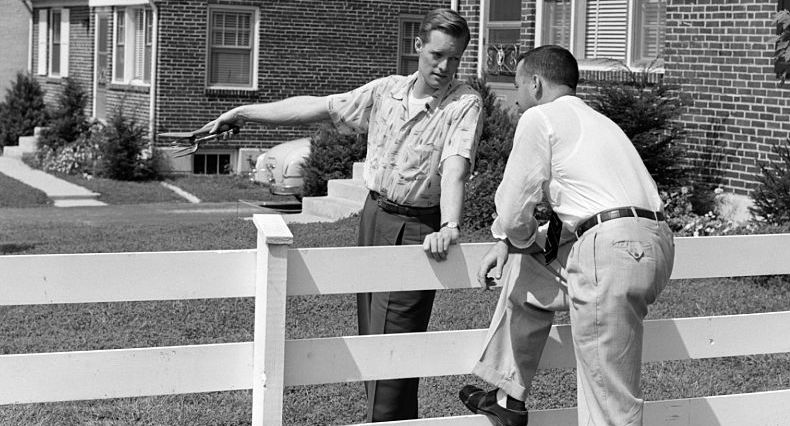Last week, Britain experienced powerful winds on a sunny summer’s day — a gift from Storm Ellen. This week, comes another blast of hot air, this one from the architecture profession.
In a bid to build better houses it seems that some architects want to abolish the garden fence. Instead of our own private back gardens they want us to share communal outdoor spaces.
The intention is, of course, a good one (who do you think designed the road to hell?) If we’re to build the new homes we need, then it’s vital that we don’t keep on making the same old planning mistakes. Hence the Government’s Home of 2030 contest — whose purpose is to “find the leading design for the low carbon, age-friendly homes of the future.”
Great, but what’s wrong with a spot of outdoor privacy?
The Guardian quotes Patrick Usborne of Perpendicular, one of the competition winners: “There’s an English perception that owning your castle needs its own land. But if we are to improve community cohesion we need to remove the ubiquitous rear garden and bring together external spaces for the community.”
Really? Whatever happened to ‘good fences make good neighbours’?
If modernist architecture had any room for ancient wisdom it wouldn’t exist. Still, modernists ought to pay more attention to the present. There’s a lot to be learned just from walking around and observing the way that people actually use the spaces that architects design for them.
Consider the ‘desire line’ — i.e. the worn-out bits of lawn that show where people actually want to walk instead of the paths provided. You can either blame pedestrians for not keeping off the grass — or the planners for failing to anticipate public demand.
Fences are the vertical equivalent of the desire line. Only in this case the desire is not for a shortcut but for privacy. If they’re not properly provided at the outset, then people will erect and maintain their own fences. In fact, they’ll even do this up in the air — apartment block dwellers fencing off their minimalist steel balconies with pot plants, willow screening and other materials.
Just as telling is the outdoor space that can’t be fenced off because residents have no right to do so. How much of it looks like, or is enjoyed like, a garden? Very little. For the most part, it’s a lifeless green void between buildings.
The exceptions — like the private communal gardens of the classic Georgian square — are exclusive and expensive. Public parks, memorial gardens and allotments — though important — are not exceptions because they are not residential.
Regardless of intellectual fashion, the fact is that the things we value most — safety, belonging, happiness and freedom — flourish behind borders. So don’t dispense with fences without understanding why they exist.











Join the discussion
Join like minded readers that support our journalism by becoming a paid subscriber
To join the discussion in the comments, become a paid subscriber.
Join like minded readers that support our journalism, read unlimited articles and enjoy other subscriber-only benefits.
Subscribe